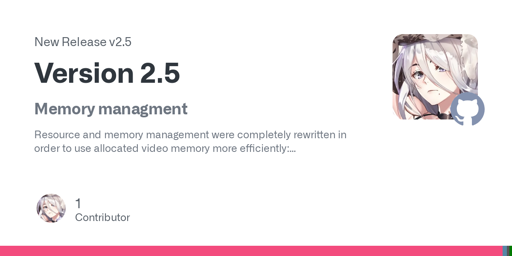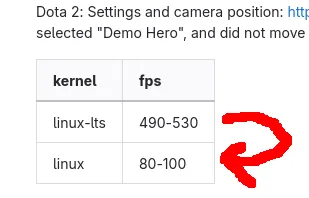- 86 Posts
- 814 Comments

 16·2 days ago
16·2 days agoSome of the APIs in use on Linux today come from older Unix variants. (For this reason, I probably wouldn’t call one of these a “Linux API” as the author did, though I guess it works linguistically for those that are usually present on Linux.) These APIs have semantics that were designed before threading existed on many platforms. Making them thread-safe without breaking existing code can be challenging.
If
setenv(3)is among these, it could explain why glibc’s implementation doesn’t support multi-threaded programs, and why its documentation states as much. To have used it in a multi-threaded environment, ignoring the docs, was a bug in the Steam client. Perhaps it never occurred to the people who ported Steam’s code to glibc that threading issues might be different from what they were used to on other platforms.To be fair, the author might be aware of this, as he did refer to glibc’s implementation as a tradeoff rather than a bug.

 39·3 days ago
39·3 days agoMatrix messaging apps. It’s nice to have modern messaging features, end-to-end encrypted, with no single point of failure, no Google involvement, and no phone numbers. I expect to start recommending it widely when the 2.0 features land in the popular clients.
WireGuard VPN. It’s fast, even on low-power devices.
Self-hosted Mumble. Excellent low-latency voice quality for chatting or gaming with friends.
Radicale, DAVx⁵, and Thunderbird, for calendar and contact sync between mobile and desktop, without handing the data over to Google or anyone else.
Thorin has my respect for building his own machine.
I hope he saves the box for you.

 23·6 days ago
23·6 days agoCloudflare is a provider that you can choose to have as a part of your own infrastructure.
Indeed.
man in the middle implies “attack”
That can be a convenient shorthand if the parties in a discussion agree to use it as such in context. For example, in a taxonomy of cryptographic attacks, it would make sense. It is not the general meaning, though, at least not a universally accepted one. Similarly, “counter” does not imply “counter attack”, unless we happen to be discussing attack strategy.
More to the point, nothing that I wrote misrepresents the situation as was claimed by that other person. If I had meant attack, I would have said attack. Rather, they made a leap of logic because I (like most of my colleagues) don’t happen to follow a convention that they like, and picked a fight over it. No thanks.

 111·6 days ago
111·6 days agoYou’re conflating MitM,
Heh… It’s safe to assume I’m well versed in this topic.
You’re going to have to prove any of your claims, or else I am just going to assume you’re talking out of your ass.
I am not, however, inclined to indulge rudeness. Bye bye.

 138·7 days ago
138·7 days agoIt bugs me when people say Cloudflare is a MitM, because that is a disingenuous representation the situation.
No, it is a clear description of what is happening: Instead of https keeping the traffic encrypted from user to service, it runs only from user to Cloudflare (and then in some cases from Cloudflare to service, although that’s irrelevant here). The result is that a third party (Cloudflare) is able to read and/or modify the traffic between the two endpoints. This is exactly what we in mean in cryptography discussions by man-in-the-middle.
You can decide that you don’t mind it because it’s not a secret, or because they haven’t been caught abusing it yet, but to say it’s not a man-in-the-middle is utter nonsense.
and you opt into it.
No, the service operator opts in to it, without consulting the user, and usually without informing them. The user has no choice in the matter, and typically no knowledge of it when they send and receive potentially sensitive information. They only way they find out that Cloudflare is involved is if Cloudflare happens to generate an error page, or if they are technically inclined enough to manually resolve the domain name of the service and look up the owner of the net block. The vast majority of users don’t even know how to do this, of course, and so are completely unaware.
All the while, the user’s browser shows “https” and a lock icon, assuring the user that their communication is protected.
And even if they were aware, most users would still have no idea what Cloudflare’s position as a middleman means with respect to their privacy, especially with how many widely used services operate with it.
To be clear, this lack of disclosure is not what makes it a man in the middle. It is an additional problem.
it cannot be a MitM because both sides of the connection are aware of this layer.
This is false. Being aware of a man in the middle and/or willingly accepting it does not mean it ceases to exist. It just means it’s not a man-in-the-middle attack.

 11·7 days ago
11·7 days agoI think zero RPM worked before (on cards that supported it) but wasn’t directly configurable in Linux.

 2·7 days ago
2·7 days agoIt doesn’t necessarily mean putting it in a game’s launch options. Environment variables can be set in a startup script, or a flatpak config, or a command line, for example. But the Steam launch options approach is convenient when you’re just testing something for one specific game.

 505·7 days ago
505·7 days agomusic group IFPI complained that while Cloudflare discloses the hosting locations of pirate sites in response to abuse reports, it doesn’t voluntarily share the identity of these pirate customers with rightsholders.
“Where IFPI needs to obtain the customer’s contact information, Cloudflare will only disclose these details following a subpoena or court order – i.e. these disclosures are mandated by law and are not an example of the service’s goodwill or a policy or measures intended to assist IP rights holders,” IFPI wrote.
So the corporations enjoying enormous profits from other people’s work are unhappy that Cloudflare doesn’t make it easy for them to circumvent due process. What a surprise.
(I’m generally not a fan of Cloudflare, because its man-in-the-middle position between users and services has grown to an unhealthy scale, making it ripe for dragnet surveillance and other abuses. But it would be even worse if it was actively helping these greedy, predatory corporations dodge the law.)

 2·8 days ago
2·8 days agoI would definitely try it. If it doesn’t help any game, or if it causes glitches/crashes, an environment variable is easy to revert.

 7·9 days ago
7·9 days agoI built a new machine pretty recently, also with an RX 7800XT GPU (factory overclocked). When sitting idle at the desktop, the system draws about the same amount of power as my old machine did with an RX 480. So I think trying to put the big GPU to sleep during desktop use might be barking up the wrong tree.
I suggest getting a power monitor, like a Kill-A-Watt, and taking measurements while you experiment. Here are some ideas to consider:
- Are you using multiple monitors? I have read that newer AMD GPUs sometimes draw more power than they should in this case. It might depend on the resolution and/or windowing system in use. (I don’t remember if the reports I read were on Wayland or Xorg.) It almost certainly is a driver issue.
- Are you using nonstandard timings? Have you tried different refresh rates? https://community.amd.com/t5/graphics-cards/which-monitor-timing-parameter-allows-gpu-vram-frequency-to/td-p/318483
- Have you been playing games for hours every day, with no frame rate limit? The graphics card can draw considerably more power pushing polygons at 1440p@180Hz than it does at 90Hz, for example, and I don’t think the wattage progression from idle to full load is linear.
- Are you using recent kernel and firmware versions?

 4·10 days ago
4·10 days agoYes.
Example from 2018 in North Carolina:
(Note that the article also mentions another example in that state from 1975.)https://fivethirtyeight.com/features/north-carolina-is-getting-a-do-over-election/
Example from 2023 in Connecticut:
(I don’t know if this one was considered a general election.)https://www.nbcnews.com/politics/elections/election-redo-rare-connecticut-mayor-rcna129735

 62·10 days ago
62·10 days agoRecounts do not include submitting new votes.
If you read my comment more carefully, you’ll find that I mentioned those two things separately, as example responses to a problem. I did not say or imply that one included the other.
You are gambling on the hope that the problem gets fixed later.
No. I am saying that election interference reports must go to the election authorities. Directing people to a political organization instead undermines the process, and is not sufficient. (Reporting to both is fine, though.)
And local election offices - often under partisan control - have no obligation to assist individuals in getting their ballot cast.
If that is a problem where you live, then I suggest also reporting to the federal authorities. There’s a whole list of contacts on the .gov page I provided.
And maybe making a special post aimed specifically at people in that situation. Not telling everyone, everywhere that a partisan political org is the place to report election interference, as was done in the problematic post.
(Again, reporting to the authorities and also reporting to a non-government org is fine; what’s bad is leading people away from reporting to the officials. The officials need to know when this stuff is happening. We need to get it on the record.)

 54·10 days ago
54·10 days agoThe misinformation is directing people to report election interference using phone numbers belonging to a political organization, rather than the election authorities. A call to those numbers is not a call to the authorities. The post directs people away from the appropriate channels. It is therefore misleading.
[Edit: I acknowledge that it might have been well-intended. It is still misleading.]
the image clearly states who is behind it.
The presence of a domain name printed at the bottom of the list of phone numbers, which most people will not carefully consider (or in many cases even notice), doesn’t make it okay.
you came at it as “lies”
I said no such thing. Please don’t put words in my mouth.

 718·10 days ago
718·10 days agoOf course, if there is immediate danger, calling someone who can show up and help right away is always a good idea. (I wouldn’t think this needs stating, but yes, I agree on this point.)
None of the resources detailed in this post provide any form of immediate assistance to resolve an ongoing threat to your ability to cast your vote.
The local election offices are not substitutes for police departments, but I think they are likely to respond quickly. They have phone numbers.
If your ballot is never cast, it can’t be fixed later. The best the folks in the OP can do is punish the people who committed the crime. They can’t get your vote counted.
This is untrue. It is better to get your vote recorded the first time, of course, but fixing things later is also possible. If regional authorities are made aware of election interference, they can initiate a re-count, refuse to certify the results until a new vote is taken, etc. That’s part of their job.

 46·10 days ago
46·10 days agoI agree, but every avenue at our disposal are forms.
This is untrue. A phone number is prominently shown on the very first official link I tried: the Public Integrity Section of the Department of Justice’s Criminal Division. There are more phone numbers at the various state election offices.
You assuming that because they are a political org, they will play partisan politics,
No. I have assumed no such thing. I am pointing out that they are not the authorities, and since they are not, a report to them is not a report to the authorities. They might play partisan politics, or they might not. They might remember to pass your report on to the authorities at some point in the future, or they might forget. There’s no way to know, and it doesn’t matter.
Report directly to the authorities. It’s fine to also report to someone else, but they are no substitute. Definitely report to the authorities.






















Looks like things have changed:
https://consumer.ftc.gov/articles/national-do-not-call-registry-faqs